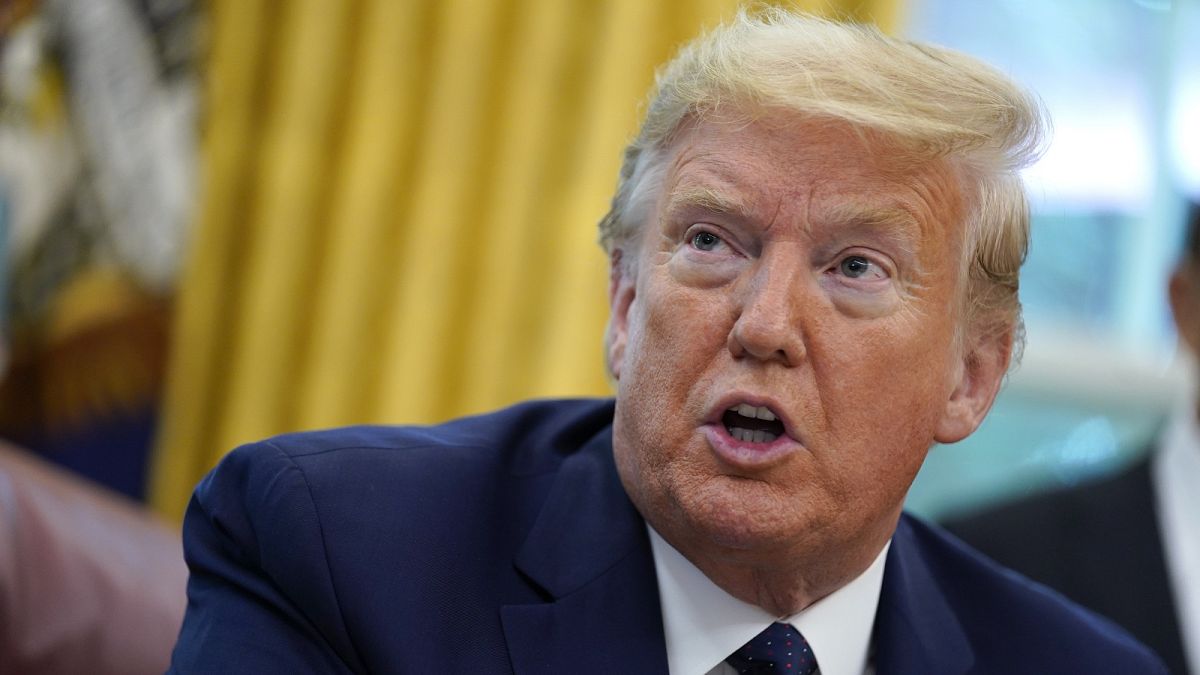You probably knew this was coming. Now it's formally happened.
The United States on Wednesday formally left the Paris Agreement, a global pact forged five years ago to avert the threat of catastrophic climate change.
The move, long threatened by US President Donald Trump and triggered by his administration a year ago, further isolates the United States in the world but has no immediate impact on international efforts to curb global warming.
"Donald Trump seems to think the United States should go it alone and to an extent he has a point when he talks about the US not getting its military entangled all over the world," said Larry Donnelly, a US law expert at University College Galway and Democrat Abroad spokesperson.
"But I think diplomatic engagement on issues like this - and especially an issue like climate change which affects us all.
The accord was hailed as a victory for multilateralism and the need for every country in the world to work against the ravages of climate change in order to secure the future of the planet.
Some 189 countries remain committed to the 2015 Paris accord, which aims to keep the increase in average temperatures worldwide "well below" 2 degrees Celsius (3.6 degrees Fahrenheit), ideally no more than 1.5C (2.7 F), compared to pre-industrial levels. A further six countries have signed, but not ratified the pact.
"To me it's profoundly sad that the president has chosen to walk away from the science in favour of short-term gain and in favour of American exceptionalism," Donnelly added. "I think that’s a shame and I’m hopeful that if Biden is elected that we can reengage not only on the Paris Accord but on a variety of other international and collaborative ways."
Scientists say that any rise beyond 2 degrees Celsius could have a devastating impact on large parts of the world, raising sea levels, stoking tropical storms and worsening droughts and floods.
The Paris accord requires countries to set their own voluntary targets for reducing greenhouse gases such as carbon dioxide. The only binding requirement is that nations have to accurately report on their efforts.
The United States is the world’s second-biggest emitter after China of heat-trapping gases such as carbon dioxide and its contribution to cutting emissions is seen as important, but it is not alone in the effort. In recent weeks, China, Japan and South Korea have joined the European Union and several other countries in setting national deadlines to stop pumping more greenhouse gases into the atmosphere.
While the Trump administration has shunned federal measures to cut emissions, states, cities and businesses in the US have pressed ahead with their own efforts.
"Whatever happens in the US at the federal level, there is action been taken by several key states in the US," Thomas Pellerin-Carlin, Director Climate Energy Sector Delors institute, told Euronews.
"The biggest state in the US, for instance, is California. And California also has a national Californian policy in order to fight climate change. So, we can still continue work with American states – or at least some of them, even if the USA as a whole might withdraw formally from the Paris agreement. At least for the next few years, in case Donald J. Trump wins the Presidential elections.”
During his first term, Trump had initially said he would be open to renegotiating the agreement or starting afresh but it's unclear which aspects of the accord, in particular, he wanted to change.
Democratic presidential candidate Joe Biden has said he favours signing the US back up to the Paris accord if he wins the White House. Both Trump and Biden are currently locked in a tight race as of Wednesday morning to get enough votes in the Electoral College to win the election.
With the United States outside the pact, it will be harder for the rest of the world to reach the agreed goals. But many voters in the US are happy to remain outside and even see it as a threat to their livelihoods which rely on carbon-heavy industries and energy.


